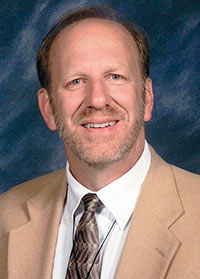
One of my Urbanna joys is to watch the ospreys nest at Waterman’s Park. In late June I caught sight of the mother with her youngster. I wondered if Junior was ready to fly. Then on July 5th I walked by the park as the day-after fireworks exploded at the river, and was alarmed to see that the loud booms and flashes of light were going off all around the nest. I thought of the young bird. Would it panic in fear and risk falling from the nest? Could it fly to safety? A couple days later I was relieved to see the two birds sitting peacefully together in the nest.
We live in fearful times. Some have suggested that, along with the pandemic, there is an epidemic fear in America. While we may not all agree as to the source of the fear or its solution, I suspect all of us would agree that this is not a healthy state of affairs. Widespread fear is not good for the body or the soul, for our children or the commonwealth.
The Bible speaks repeatedly of the “Fear of the Lord.” But as a young Christian I was troubled by the idea that I should fear God. Isn’t our Heavenly Father a God of love? Didn’t Jesus tell us, “Do not be afraid”?
I memorized early the words of 1 John 4:18: “Perfect love casts out fear.” I guess you might say that in my confusion, I had a fear of fear. Apparently I’m not alone. My Life Application Bible does not contain a category for “Fear of the Lord.”
So what does it mean to fear the Lord? When is it good for a Christian to be afraid?
A celebrity told how at the darkest time in his life, he found himself on the floor speaking to no one: “It’s hard. It’s hard.” Then to his amazement, an inaudible voice responded, “It’s supposed to be.” But rather than panic, he was relieved: “I’m not alone. Someone cares. Maybe there’s help for me.”
After that, he found the help he needed and discovered that the source of his help is the God he had long ignored. With deep gratitude, he said that now he looks for opportunities to help others in need. He concluded simply, “I am a happy man.”
But it was his one comment in particular that got my attention. During that time, “I learned the meaning of the ‘Fear of the Lord’: I don’t want to offend the one who helps me.” His remark reminded me of the many times I was kept from getting in worse trouble than I did because I didn’t want to hurt my parents. I did not want to lose the ones who had loved and cared for me.
The apostle Paul wrote to believers: “Work out your salvation with fear and trembling” (Phil. 2:12), and “Because we have [God’s] promises…let us work toward complete holiness because we fear God” (2 Cor. 7:1). And one of God’s great promises is that “nothing in all creation will be able to separate us from the love of God in Christ Jesus our Lord” (Romans 8:39).
By grace, our experiences often confirm what the Bible teaches. In the time of its great fear, I imagine that young osprey snuggling under its mother’s sheltering wing. When it comes to the fear of the Lord, Christians learn that we need fear nothing but the loss of God our loving Savior and sure help. But the thought of losing God should strike a holy fear in us, the fear that draws us closer to the source of our saving help.
Yes, life in a fallen world is supposed to be hard. But all who fear the Lord have every help we need. Do you know the source of your true help? Are you seeking the Lord with a holy fear?
(The Rev. R. Bruce Johnson is the pastor of Urbanna United Methodist Church. His email address is rbrucejohnson2010@gmail.com.)


